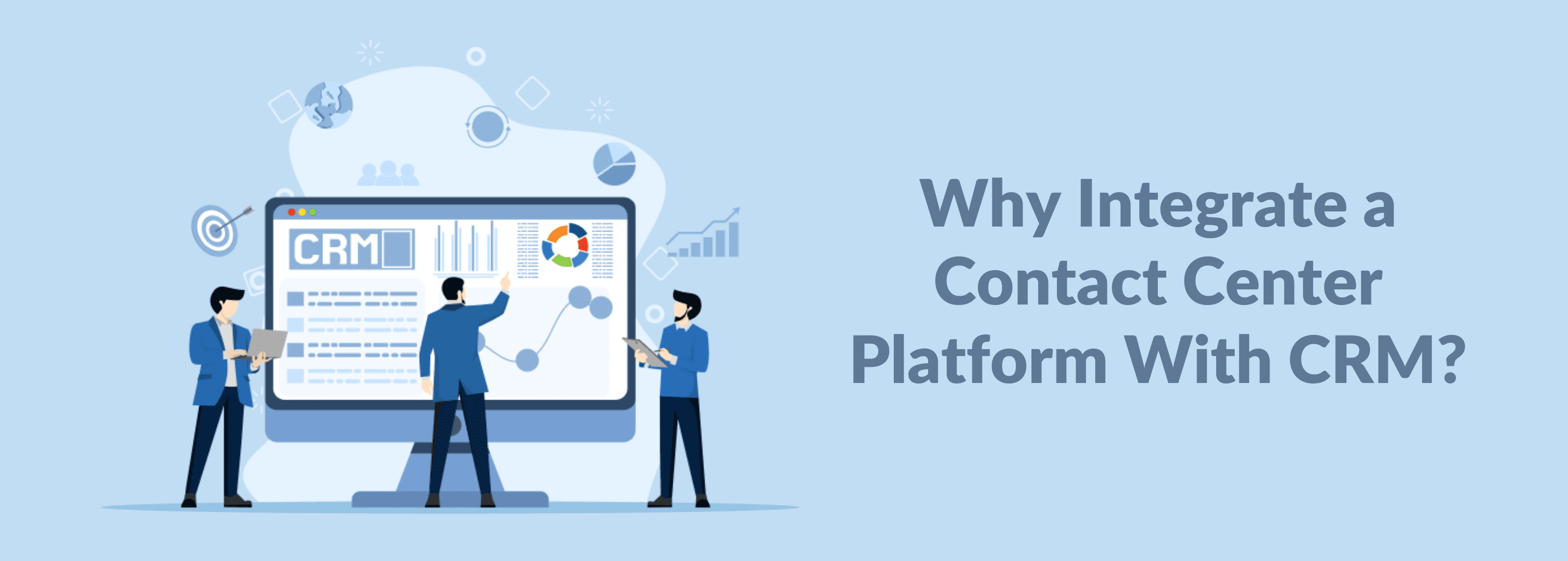Why Is There a Need for a Contact Center Platform to Be Integrated With CRM Software?
I had a conversation with one of my prospective customers in the third-party collections space. They have seen a demo of our platform, and as a part of the demo, we also showed the integration of our platform with our micro CRM so they could understand the benefits of integrating their CRM with our contact center platform.
They are convinced to go ahead with our platform for their needs.
As a first step, we got on an onboarding call where they explained that they have a basic CRM that doesn’t serve their purpose. They were checking if they could use our micro CRM as a part of their implementation.
We decided to understand their customer journey flows and their existing CRM setup. This would allow us to figure out whether they can continue with their setup or go with our micro CRM or if we should suggest a new CRM they should opt for.
Their customers provide the data of the people to be contacted for collections. Their customers don’t want this data to be stored anywhere else apart from the CRM of the collections company.
Given this requirement and the understanding of the flow, we decided to suggest a CRM with which we have a pre-built integration. We have seen a lot of success for many collections organizations with this setup.
This conversation got me thinking about the need for organizations to integrate their CRM with the contact center platform.
While we understand the need, we haven’t written an article specifically to address the advantages of this integration.
Here is an attempt to put together the reasons for CRM integration.
Six Reasons Why You Should Integrate CRM Software With Contact Center Technology
#1
The integration provides a centralized customer information database, allowing agents to personalize interactions with each customer.
How does this boost the customer experience (CX)?
Let me give you an example.
Your customer reached out to you for an issue with the working of the software they purchased from you. You understand the issue requires intervention from your technical team, so escalate it to your tech support. You enter this disposition in the contact center platform, which gets updated in the CRM.
After this step, you are not in the loop. After six months, the same customer called up for another request. Now, when you access the CRM, the entire flow of the previous request and the resolution provided is available. This makes your interaction with the customer an informed one, allowing you to provide better experiences for them.
The CRM logs activity in real-time, so agents always have the most current information.
#2
It improves the productivity of agents multifold. It helps automate workflows and repetitive tasks.
Let me give you an example.
When a customer reaches out to the contact center, it can populate your screen with all the customer data.
What is it they have purchased from you, how long have they been your customer, what is the value of their purchase, what are the reasons why they contacted you earlier, what was the resolution provided, and the like?
You get access to complete customer histories, preferences, and past interactions right on your screen, which allows you to handle the interaction quickly.
This reduces the average handling time for each interaction, which is a key measure of productivity. Besides, the customer feels valued as they don’t have to repeat the mundane things.
#3
Unified reporting and analytics
Your customers interact with your organization on multiple channels – email, voice, SMS, WhatsApp, mobile app, social, and chatbots.
An integrated CRM captures all these interactions in real time. This unified data allows you to generate detailed reports and analytics, providing insights into customer behaviors, agent efficiency, and overall effectiveness.
#4
Eliminate misdials
When you make outbound calls, there is a possibility of misdials.
But, when your CRM is integrated with your contact center technology, you can dial your customers directly from the CRM. This means you will call exactly who you mean to call every time.
#5
Increased profits
As CRMs collect customer insights in real-time across channels, they can be used to understand the buying habits of customers, as well as the possible opportunities for upselling and reselling your offerings.
This intelligence is made available to the agents easily, making it easy for them to make additional sales, thereby increasing profits.
#6
Fewer knowledge silos
The biggest stress agents experience in any contact center is the time and effort they spend looking for information across multiple screens and interfaces.
With CRM integration, you get to see all the customer information from one interface. So, you don’t have to spend time searching knowledge bases; instead, you can spend that time resolving queries faster and enhancing the customer experience.
If you are a contact center and you don’t have CRM integration, you are already behind the race. CRM integrations provide you with all the advantages we have mentioned above.
Besides, look at the data of how organizations worldwide have benefitted by integrating CRM with their contact center technology.
- 74% of businesses have improved their customer satisfaction rates
- 74% of companies have improved their access to customer data
- 50% of businesses have improved their agents’ productivity
Most contact center platform providers have pre-built integrations with industry-leading CRM software, which you can make use of.
With CRM integrations, you can keep track of conversations, making your agents super productive and your customers happy.
